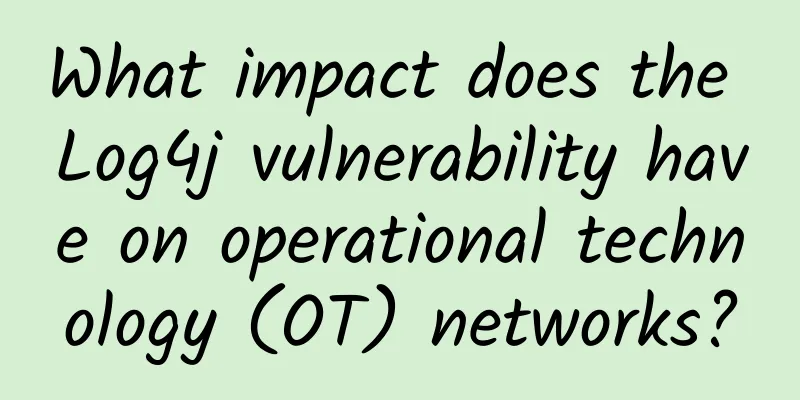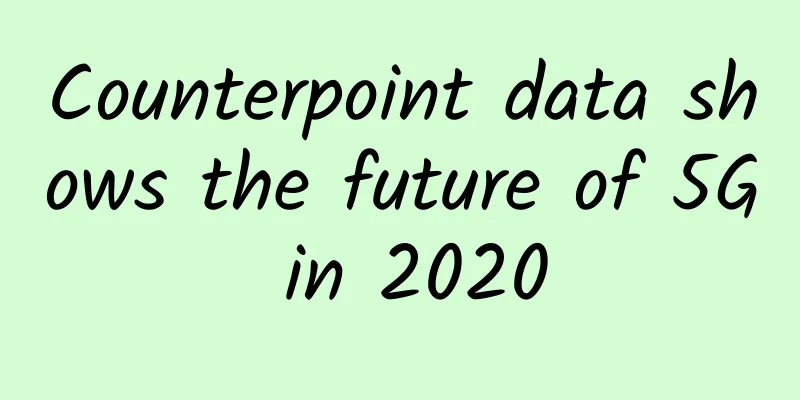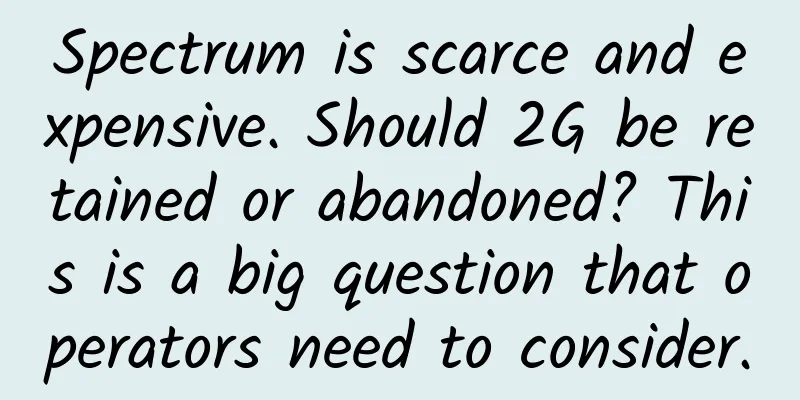Why are unlimited data plans dying?

|
Regardless of whether it was a unified arrangement by the regulators, at least the three major operators simultaneously removed all unlimited data packages in May 2019, and also launched various discounts for existing users to migrate, and the operation of making small-scale plates was very obvious. So far, the unlimited data competition that was first launched by China Unicom Tencent King Card in 2017 has come to an end. From the national carnival at the beginning to the abrupt end at the end, why did the unlimited data package die? 1. The widening gap between traffic and revenue is the main factor In the era of mobile Internet, traffic is the main source of revenue for operators. In the process of transformation to traffic management, in order to expand the scale of traffic revenue, operators did not hesitate to allow WeChat and other instant messaging apps to replace voice. Objectively speaking, the reason why voice revenue dropped sharply and traffic revenue surged is that operators deliberately transferred money from one hand to the other. In the early and middle stages of the 4G era, relying on the high unit price of traffic and the rise of mobile Internet, operators promoted traffic business as a pillar source of income. The orderly and gradual reduction of the unit price of traffic that operators originally planned to implement was disrupted by China Unicom after the mixed-ownership reform. To some extent, BATJ took advantage of the mixed-ownership reform to acquire shares in China Unicom and jointly launched unlimited packages. Although it has the effect of magnifying the advantages of all parties in the mixed-ownership reform, it cannot completely rule out the suspicion of further sucking blood from operators. The competition for unlimited data traffic entered a fierce stage in 2018, with the threshold for unlimited data packages rapidly lowered to 29 yuan/month, and even for government and enterprise customers, operators launched 19 yuan/month packages. In this chaotic battle, in order to prevent the other side from gaining an advantage, competing to launch lower packages to attract users has become the main means of competition for operators. Driven by ultra-low-priced unlimited packages, the DOU of mobile phone users in my country has rapidly jumped from about 1GB/month to 3GB/month and 4GB/month. In this process, although operators can see the surge in traffic business volume, the real money they receive has not increased accordingly. The traffic management crisis caused by unlimited competition finally broke out in the first half of 2019. The main manifestation is that the main business income of operators has directly gone from slight growth to negative growth. The data released by the Ministry of Industry and Information Technology is very convincing. It took only one year for the industry to go from a positive growth of 3.7% to a negative growth of 0.2%. This year also saw the most intense competition for unlimited traffic. If the senior managers of operators have time to look back, I wonder how they would view the various decisions that have harmed the scientific development of the industry. It took nearly a year to go from a negative growth of 0.2% to a positive growth of 3.2% at the end of June this year. In this process, no matter how fast the revenue of various emerging businesses grows, the stable growth of traffic revenue plays a ballast role. The rational competition operation strongly promoted by the regulators in 2019 played a very important role in promoting this. 2. The lack of operators’ post-payment model cannot be ignored As a bridge between the content provided by Internet companies such as BATJ and users, in theory, operators can charge fees from both Internet companies and users to achieve their goal of operating profitably. Pre-paid refers to the fees charged by operators from users, and post-paid refers to the fees charged from Internet companies. If the operator provides free or nominal charges to users, then the operator needs to collect corresponding fees from the Internet companies. In essence, unlimited packages mean charging users a nominal fee, after all, users can use unlimited traffic for only a small fee. If the operator only provides free or nominal charges to users, and does not charge Internet companies at the same time to make up for the corresponding losses, then the operator's "free" will inevitably fail. If the postpaid model has been implemented, the operator can completely transfer the cost of serving the user side to the Internet company. In this case, the operator will also do everything possible to encourage users to use traffic so that they can charge more fees from the Internet company and continuously increase the scale of revenue. Logically speaking, in the absence of a post-paid model, the possibility of operators implementing ultra-low-priced unlimited traffic again is zero. After all, practice has proven that this approach is unsustainable. Promoting the implementation of the post-paid model is not a task that operators can accomplish on their own, but requires the joint efforts of the whole society. 3. Operators have not figured out how much room there is for small profits but quick turnover Since the beginning of the 4G era, there have been various voices calling for operators to pass on profits to consumers through small profits and quick turnover. In fact, the three major operators have been steadily pushing forward the pace of traffic price reduction, but this pace was completely disrupted after China Unicom's mixed ownership reform. Although the purpose of operators implementing unlimited competition is to enhance their own competitiveness, it has objectively promoted the accelerated realization of universal informatization. Although implementing small profits but quick turnover is beneficial to all parties including operators, operators need to figure out the cost of traffic. One of the main reasons why unlimited traffic died is that operators do not know the cost of their own traffic. Otherwise, all kinds of bottom-line price cuts would not be implemented, and even if they were implemented, they would not be carried out on such a large scale. After all, there is a risk of loss of state-owned assets. What is the cost of traffic? We believe that operators have not figured it out yet. If they don’t know the cost of traffic, then it means that operators don’t know the room for further price reduction of traffic. Although operators still have a net profit of more than 100 billion, their net profit margin is already close to or even below double digits. This may partially explain the room for price reduction of traffic. After 5G commercialization, in order to expand the scale of 5G package users, operators have started a new round of traffic price reduction operations. Although the current 5G package threshold is still relatively high, the cost-effectiveness of such continuous and substantial price reductions and large investments in 5G is worth studying by operators. Regardless of the real reason for the removal of unlimited packages, at least one thing is very clear, that is, unlimited packages are not unpopular in the market. Driven by various preferential migration policies of operators, the number of users of unlimited data packages is decreasing. Although 5G packages are also continuing to drop in price, we believe that before the emergence of 5G-specific applications, it is not easy for the majority of users to replace their unlimited packages. |
Recommend
Liu Pingyang of Youpaiyun: The whole industry releases the charm of CDN and the live broadcast market accelerates again
[51CTO.com original article] The interview with L...
Do you know all the HTTP protocols?
[[390013]] 1. HTTP protocol HyperText Transfer Pr...
SpartanHost Seattle E5 series VPS partial restock, Dallas large hard drive VPS restock
I haven't shared information about SpartanHos...
10gbiz: Hong Kong CN2 GIA line VPS monthly payment starts from $2.75, Los Angeles CN2 GIA line VPS monthly payment starts from $2.36
10gbiz has released a new discount plan, offering...
Introduction to various types of network cables, what are Category 5 and Category 6 cables?
1. Network cable overview The network cable usual...
5G optical fiber product network construction requirements
5G is a leading technology in the new generation ...
Seven trends in enterprise networking in 2018
As enterprises gradually establish their own digi...
Are there fake Gigabit routers? Have you ever avoided these manufacturers' pitfalls?
The story of how home networks are as slow as a s...
Traefik Enterprise Practice: TraefikService
Introduction The routing rules of traefik can imp...
Huawei IoT Cloud Services Accelerates Industry Innovation and Promotes Large-Scale Commercial Use
At the 2017 Huawei Connect Conference held from S...
ColoCrossing US VPS 50% off, $1.97/month-1GB/25G SSD/20TB@1Gbps
ColoCrossing recently released a 50% discount cou...
Huawei launches IoT cloud service, emphasizes IoT security, and promotes large-scale commercial use of IoT
[51CTO.com original article] The Internet of Thin...
How these three benefits of SDN can help small businesses
Large and medium-sized enterprises adopt SDN as a...
Sparks from blockchain and the Internet of Things
The Internet of Things is the application that is...
GSMA: Global 5G connections will reach 1.8 billion by 2025
According to a new study from GSMA, global 5G con...








![[5.1] Megalayer limited time sale, E3-1230/8G US & Hong Kong server starting from 199 yuan/month](/upload/images/67cabed77271f.webp)
